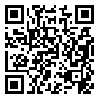Articles accepted at the time of publication
Back to the articles list |
Back to browse issues page
1- Assistant Professor in TEFL, English Language Department, Khatam University , m.hajmalek@gmail.com
2- Khatam University
2- Khatam University
Abstract: (1118 Views)
Diagnostic Formative Assessment (DFA) has already established its applicability and necessity in second language teaching practice and research as a legitimate supplement to summative assessment. However, examples of practical implementations of DFA informing SLA research and an investigation of the detailed processes involved, especially when it comes to productive skills such as speaking in tertiary educational settings are rather scarce. Therefore, focusing on the formality dimension, as a rather neglected component in DFA, the present quasi-experimental study set out to compare the effects of formal and informal DFA on Iranian EFL learners’ oral fluency and accuracy at university level. For this purpose, a homogeneous group of 52 male and female L2 learners were assigned to two experimental conditions and after a speaking pre-test developed and scored based on IELTS speaking tasks, went through four months of formal and informal DFA based on four reiterative stages of Observation, Initial Assessment, Hypothesis Checking, and Decision Making. Upon the post-test, the results of ANCOVAs showed that both treatments equally contributed to learners’ development of oral fluency and accuracy, indicating that traditional skepticisms towards informal DFA must be revisited and they can serve as appropriate supplements to more formal approaches whenever necessitated by the instruction. EFL practitioners are recommended to take these rather broad, flexible, and convenient informal DFA practices into consideration and decide on their exact choices based on the particularities of the context, situation, and individual learners, which leads to an expansion in their pedagogical options.
Keywords: second language assessment, diagnostic formative assessment, formal and informal DFA, speaking fluency &, accuracy, EFL learners
Article Type: Research article |
Subject:
assessment
Send email to the article author
| Rights and permissions | |
 |
This work is licensed under a Creative Commons Attribution-NonCommercial 4.0 International License. |






